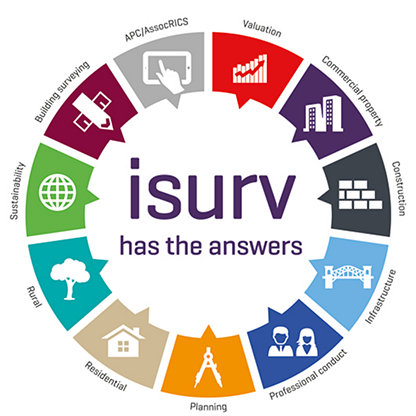Now more than ever, professionalism matters. We are making it easier for clients and the public to choose skilled experts and have confidence in what to expect when they hire an RICS professional. As market trends change, the way RICS professionals qualify and practice is also evolving to deliver confidence and address real market challenges with ethical business practices.
The RICS Rules of Conduct have recently been updated to help the global profession respond to new risks and opportunities.
The new Rules replace the previous version which had been in place for members and firms since 2007. We have introduced the following changes to bring our ethical standards into one clear framework.
- A simpler structure. We have made it easier for RICS members and firms to understand our rules, providing more confidence for clients and the public.
- Clear examples. To help support members’ professional judgement, each Rule is illustrated with examples of how members and firms can behave to comply with the Rule. There are also 12 case studies showing real-life application of the Rules.
- Focusing on respect, diversity and inclusion. Whether it’s encouraging diversity and inclusion, or tackling modern slavery, respect and courtesy underpin all our professional ethics.
- Understanding evolving technology. The Rules highlight the importance of understanding the evolving use of data and technology, and the associated benefits and risks.
- Tackling global challenges. The Rules show that ethical practice by RICS members and firms has an important role when it comes to global challenges, including creating sustainable development and tackling climate change.
The new Rules of Conduct came into effect on 2 February 2022.
New Rules of Conduct
Published date: 27 September 2021
Published date: 18 June 2021
We’ve also made available various resources to help members and firms familiarise themselves with the new rules
-
Case Studies
-
Further Learning
-
Ethics Decision Tree
-
FAQs
RICS Rules of Conduct Webinar
18 Nov 2021
RICS Rules of Conduct Webinar
19 Jan 2022
Published date: 19 January 2022
Published date: 10 December 2021
Behaving ethically is at the heart of what it means to be a professional; it distinguishes professionals from others in the marketplace.
Published date: 08 October 2021
This set of FAQs captures questions which may arise from candidates, assessors, counsellors, employers, and education providers relating to the impact of the new Rules of Conduct on entry and assessment.
The existing Rules of Conduct in place for RICS members and regulated firms since 2007, have been updated following research and a membership wide consultation at the end of 2020.
The new Rules launched on 11 October 2021 with an effective date of 2 February 2022, and replace the following:
- Rules of Conduct for Members
- Rules of Conduct for Firms
- Global Professional and Ethical Standards.
The Rules of Conduct are mandatory standards of professional conduct and practice expected of all RICS members, candidates, students, and regulated firms.
There are five new Rules which have been updated to address challenges relating to sustainability, the use of data, and diversity and inclusion. The new Rules are based on the ethical principles of honesty, integrity, competence, service, respect, and responsibility.
The changes are intended to help the global profession respond to new risks and opportunities.
Since the launch of the new Rules in October 2021, RICS has made resources available via the main rules of conduct webpage, including a free online module ‘Introduction to the New Rules of Conduct’, case studies, an ethical decision tree, and webinars.
The Rules have also been translated in eight languages which can be downloaded from this webpage.
Read the FAQs
- Members and firms must be honest, act with integrity and comply with their professional obligations, including obligations to RICS
- Members and firms must maintain their professional competence and ensure that services are provided by competent individuals who have the necessary expertise
- Members and firms must provide good-quality and diligent service
- Members and firms must treat others with respect and encourage diversity and inclusion
- Members and firms must act in the public interest, take responsibility for their actions and act to prevent harm and maintain public confidence in the profession
The Rules of Conduct are based on ethical principles of honesty, integrity, competence, service, respect, and responsibility.
The new Rules, a single document, replace the following:
- Rules of Conduct for Members
- Rules of Conduct for Firms
- Global Professional and Ethical Standards.
The following changes will bring our ethical standards into one clear framework.
- A simpler structure. We are making it easier for RICS members and firms to understand our rules, providing more confidence for clients and the public.
- Clear examples. We want to support members’ professional judgement, so each Rule is illustrated with examples of how members and firms can behave to comply with the Rule. There are also 12 case studies showing real-life application of the Rules.
- Focusing on respect, diversity and inclusion. Whether it’s encouraging diversity and inclusion, or tackling modern slavery, respect and courtesy underpin all our professional ethics.
- Understanding evolving technology. The Rules highlight the importance of understanding the evolving use of data and technology, and the associated benefits and risks.
- Tackling global challenges. The Rules show that ethical practice by RICS members and firms has an important role when it comes to global challenges, including creating sustainable development and tackling climate change.
Whilst it is important you are aware of the changes, all candidates taking the Chartered or Associate assessment prior to the 2 February 2022 will continue to be tested on the current set of documents:
- Rules of Conduct for Members
- Rules of Conduct for Firms
- Global Professional and Ethical Standards.
The “Ethics, Rules of Conduct and professionalism” competency will continue to be mandatory to Level 3 for all Chartered assessments, and mandatory for all Associate assessments.
As this competency requires you to have a thorough knowledge of RICS regulations and Rules of Conduct, you should have an awareness of the new Rules and the date they will be effective.
You will be questioned on the new Rules of Conduct, which launched on 11 October 2021 and are effective from 2 February 2022*
If you successfully completed the RICS online ethics module before 2 February 2022, your result remains valid for up to 12 months. You do not need to take the new version of the module (see Question 4).
You will need to consider this when completing your written submissions and statement for the “Ethics, Rules of Conduct and professionalism” competency, which will continue to be mandatory to Level 3 for all Chartered assessments. Associate candidates are not required to complete a written statement for the competency as this will be tested via the RICS online ethics module.
We understand that for some candidates there will be crossover between the current suite of documents and the new Rules. If you submit your written submissions prior to 2 February 2022, but then sit your assessment after the effective date, the assessors will be asked to take this into account.
*If your RICS assessment was scheduled to take place before 2 February 2022 and was postponed by RICS beyond the effective date of 2 February, you will still be questioned about the new Rules of Conduct as part of your assessment interview. This is because the new Rules launched on 11 October 2021.
Yes.
The current online ethics module – Professional Ethics for RICS Members – includes references to the 2007 Rules of Conduct and the five global ethical principles.
In line with the new Rules, the module will be replaced with a new version from 2 February 2022. Access to the current module will no longer be available from then.
The module is mandatory for anyone joining RICS via any route. RICS assessors must also complete the module every three years.
RICS members must complete CPD relating to ethics every three years. The ethics module is not mandatory for this purpose, and we recognise other activities qualify.
Yes, for a time period.
All candidates joining RICS must successfully complete the online ethics module Professional Ethics for RICS Members within 12 months of their final assessment.
Candidates who have successfully completed the Professional Ethics for RICS Members module prior to 2 February 2022 do not need to take the new version if they pass their assessment within 12 months of completing the current module.
If your RICS assessment was scheduled to take place before 2 February 2022 and was postponed by RICS beyond the effective date of 2 February, you will still be questioned about the new Rules of Conduct as part of your assessment interview. This is because the new Rules launched on 11 October 2021.
We understand that for some candidates there will be crossover between the current suite of documents and the new Rules. If you submit your written submissions prior to 2 February 2022, but then sit your assessment after the effective date, the assessors will be asked to take this into account.
Yes, when it’s available from 2 February 2022.
However, if you decide to take the new version for the purposes of your assessment, this will void your original ethics module result and you would need to pass the new version to be eligible to submit for assessment.
To avoid any potential delay to you submitting for assessment we recommend you use the support materials and guidance available here to develop your competence on the new Rules.
If you enrol onto an RICS assessment or apply through a direct entry route after 2 February 2022, you will need to complete the new version of the module.
If you have completed the current version, you will only need to undertake the new version if you do not pass your assessment or complete your election via a direct entry route within 12 months of the date you originally completed the module.
If you are a direct entry applicant and your application has been approved, you will need to complete the ethics before 2 February 2022. If you have not completed the module by this date, you will need to complete the new version.
Yes.
RICS has collaborated with qualified professionals around the world, as well as seeking input from outside the profession, to create new content which reflects the role of professionalism and the new Rules of Conduct.
The new RICS Professionalism module will be a mandatory requirement to achieve professional status when it launches on 2 February 2022. The module will feature a completely new e-learning section with more interactive material, including a ”choose your own adventure” case study. The assessment element of the module will feature a “complex” case study and 20 multiple choice questions (MCQs). Questions are randomly selected from a bank of 100.
As with the current module, it will take approximately three hours to complete. More information will be available later this summer.
The “Ethics, Rules of Conduct and professionalism” competency will continue to be mandatory to Level 3 for all Chartered assessments, and mandatory for all Associate assessments.
This competency requires you to understand the role of RICS, including a thorough knowledge of its regulations and Rules of Conduct.
The competency description and examples of the likely skills, knowledge and experience required to achieve the competency will be updated from 2 February 2022 to reflect the new Rules of Conduct and terminology. Candidates and assessors should continue to refer to the current competency description in the meantime.
As an RICS-qualified professional, you will need to be familiar with the new Rules of Conduct, the changes to the current suite of documents, and the effective date.
The “Ethics, Rules of Conduct and professionalism” competency will continue to be mandatory to Level 3 for all Chartered assessments, and mandatory for all Associate assessments. Associate candidates are not required to complete a written submission for the competency as this will be tested via the RICS online ethics module.
The updated wording of the competency will be launched 2 February as an Assessor you must ensure you are familiar with this.
Assessments before 2 February 2022
As this competency requires candidates to have a thorough knowledge of RICS regulations and the Rules of Conduct, it is reasonable to expect candidates to have an awareness of the new Rules, but you should continue to assess candidates based on the current set of Rules and ethical standards until the effective date.
Candidates must not be referred solely, or in any part, based on the new Rules prior to 2 February 2022.
Assessments after 2 February 2022
From 2 February 2022, candidates must be tested on the new Rules. It is important to bear in mind that for some candidates there will be crossover between the current suite of documents and the new Rules.
If a candidate submits their written submissions prior to 2 February 2022, but is assessed after the effective date, you should take this into account during your review of their written submission and your assessment of the candidate.
If a candidate submits their written submissions after 2 February 2022, you must base your review of their written submission and your assessment on the new Rules.
UK Session 2 Candidates Autumn 2021
Some candidates for this session will not have sat their assessment before the effective date of 2 February 2022. If their RICS assessment was scheduled to take place before 2 February 2022 and had to be postponed by RICS, candidates should still be questioned about the new Rules of Conduct as part of their assessment interview. This is because the new Rules launched on 11 October 2021.
Associate candidates are not required to submit a statement against this competency as they will have demonstrated it by successfully completing the online ethics module
RICS assessors must complete the ethics module every three years. If you completed the module before 2 February 2022, your certificate is valid for up to the three years from the date of completion.
Assessors are encouraged to complete the new version of the module and can access other training content and supporting materials about the new Rules of Conduct here.
As an RICS-qualified professional, you will need to be familiar with the new Rules of Conduct, the changes to the current guidance, and the effective date.
Your role as a Counsellor is to support the candidate to plan, monitor and develop their experience and to present this effectively in their written submissions. You should consider when the candidate is likely to submit and be assessed and ensure they are aware of the new Rules, the changes from the current Rules and the effective date.
For Chartered Assessment candidates you can also support them with possible questioning when preparing for the assessment interview.
UK Session 2 Candidates Autumn 2021
Some candidates for this session will not have sat their assessment before the effective date of 2 February 2022. If their RICS assessment was scheduled to take place before 2 February 2022 and had to be postponed by RICS, candidates should still be questioned about the new Rules of Conduct as part of their assessment interview. This is because the new Rules launched on 11 October 2021.
For a programme to meet the requirements for RICS-accreditation, we expect our current ethical standards to be woven through it; ideally the principles are embedded at an early stage, followed by the application of such as the programme develops.
Education providers must prepare for the change and begin to update their materials to reflect the new Rules of Conduct. This will be taken into consideration as part of the future re-accreditation of a programme.
The Chartered Surveyor Degree Apprenticeship (CDSAs) includes an RICS-accredited degree with the RICS Assessment of Professional Competence (APC) as the end-point assessment.
The Level 3 Surveying Technician Apprenticeship includes an RICS-approved Level 3 Diploma with the Associate Assessment as the end-point assessment.
Accredited degrees (Level 6) must embed the RICS ethical standards. Education providers must prepare for the change and begin to update their materials to reflect the new Rules of Conduct. For approved diplomas (Level 3), providers will have to include additional content outside of the diploma to cover the new Rules.
No – the new Rules of Conduct incorporate the current RICS ethical principles. Candidates for the Associate and Chartered assessments will continue to be tested on the “Ethics, Rules of Conduct and professionalism” competency, and will need to understand the requirements to demonstrate it at your assessment.
Please refer to the candidate section of this document.
No. Providers must prepare for the change and begin to update their materials where appropriate to reflect the new Rules of Conduct.
Yes. All candidates/members will have access to free CPD that explains the new Rules and outlines the key changes from the old Rules and Global Ethical Principles.
The online hub for the Rules of Conduct, supporting guidance and other materials is here
The RICS Education and Qualification Standards policy team can help if you have any questions about the new Rules of Conduct in relation to entry and assessment to the profession – please email globaleqs@rics.org.
The Rules of Conduct have been fully translated into 8 languages
Available Languages
Published date: 27 September 2021
Published date: 27 September 2021
Published date: 27 September 2021
Published date: 27 September 2021
Published date: 27 September 2021
Published date: 27 September 2021
Published date: 27 September 2021
Published date: 27 September 2021
Knowledge and Information Services
Providing support to members in their work. Our goal is to combine the best of traditional library services and space with a resource and enquiry service open to all members, regardless of where they work.







